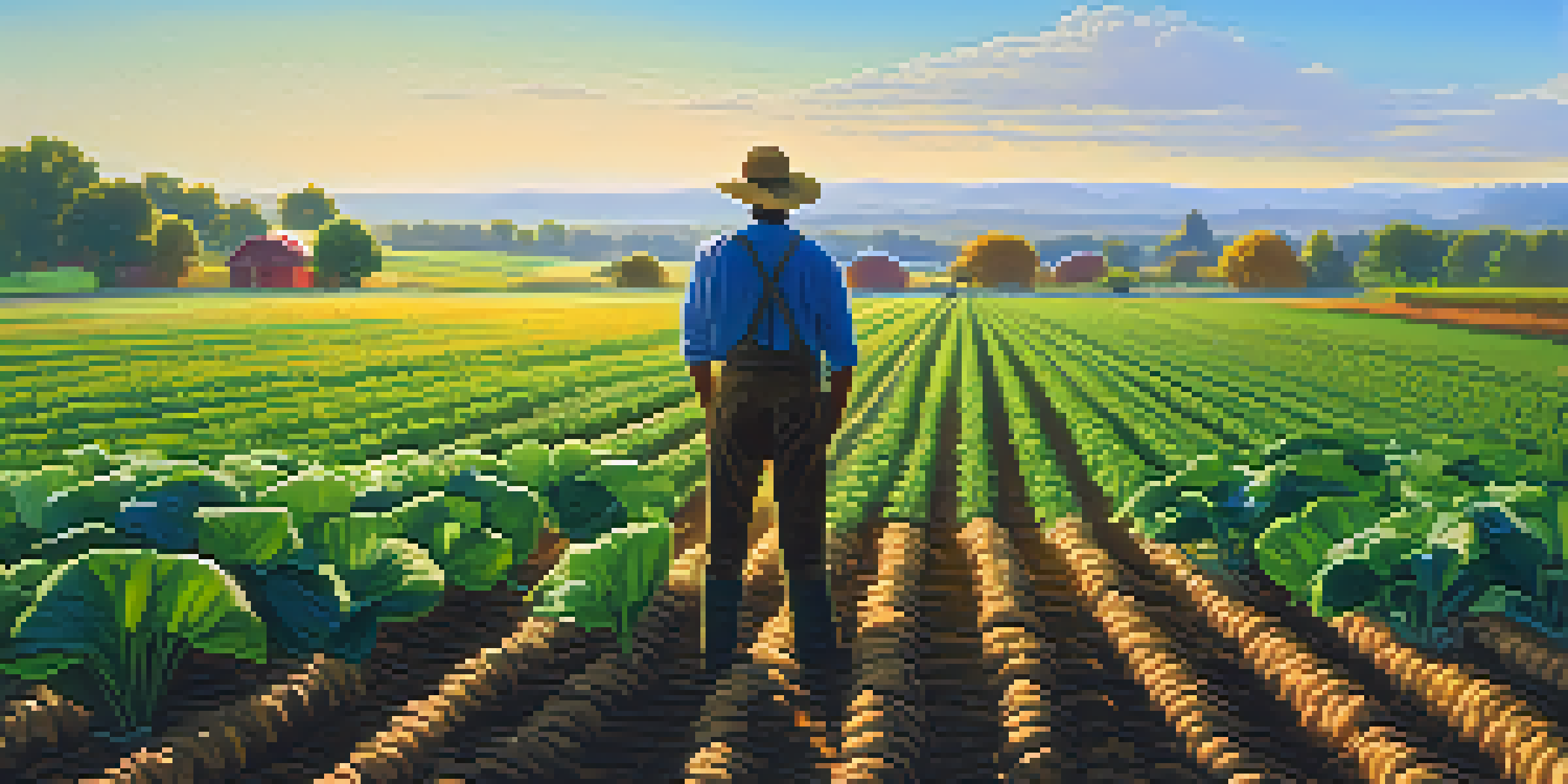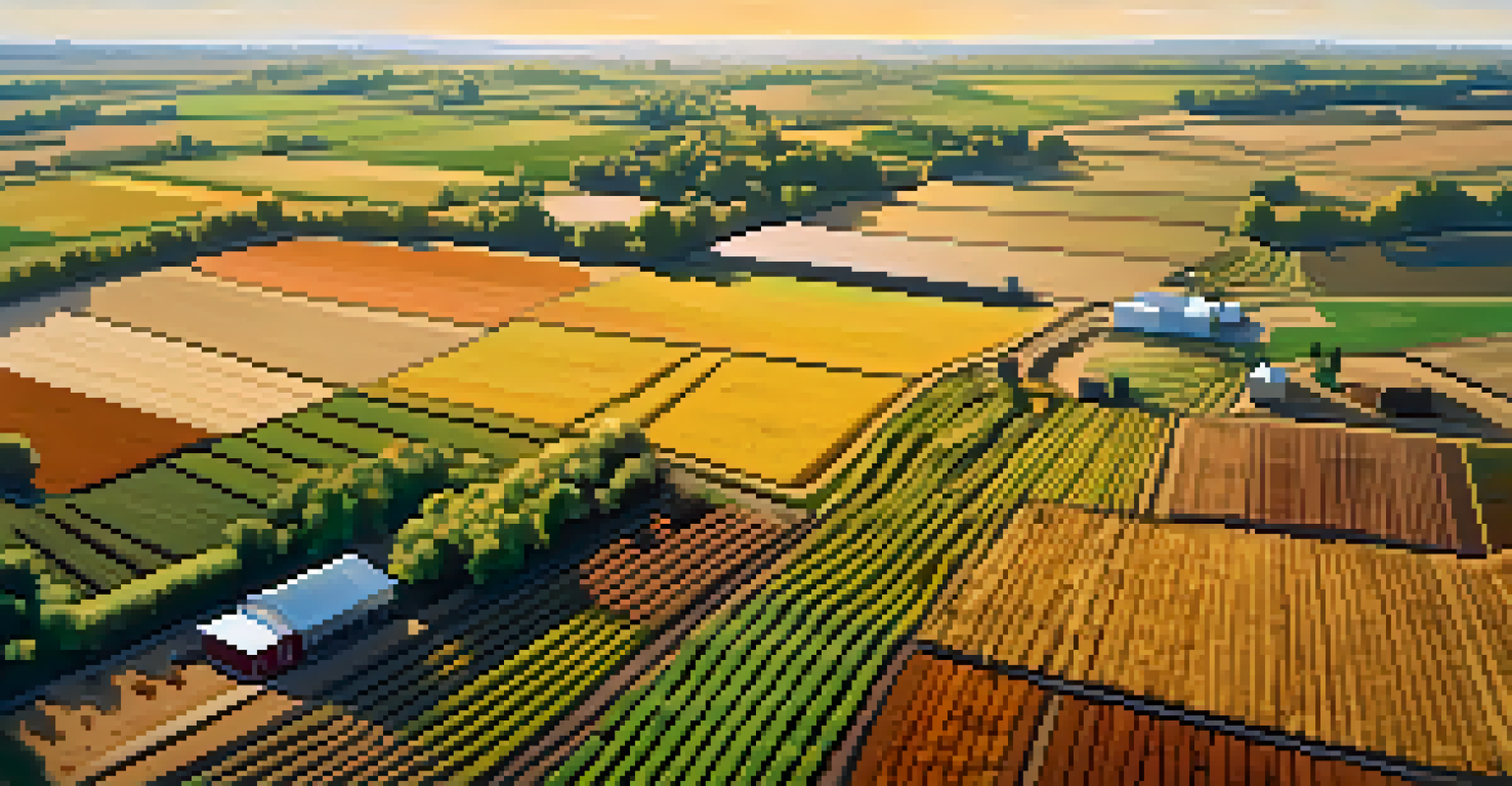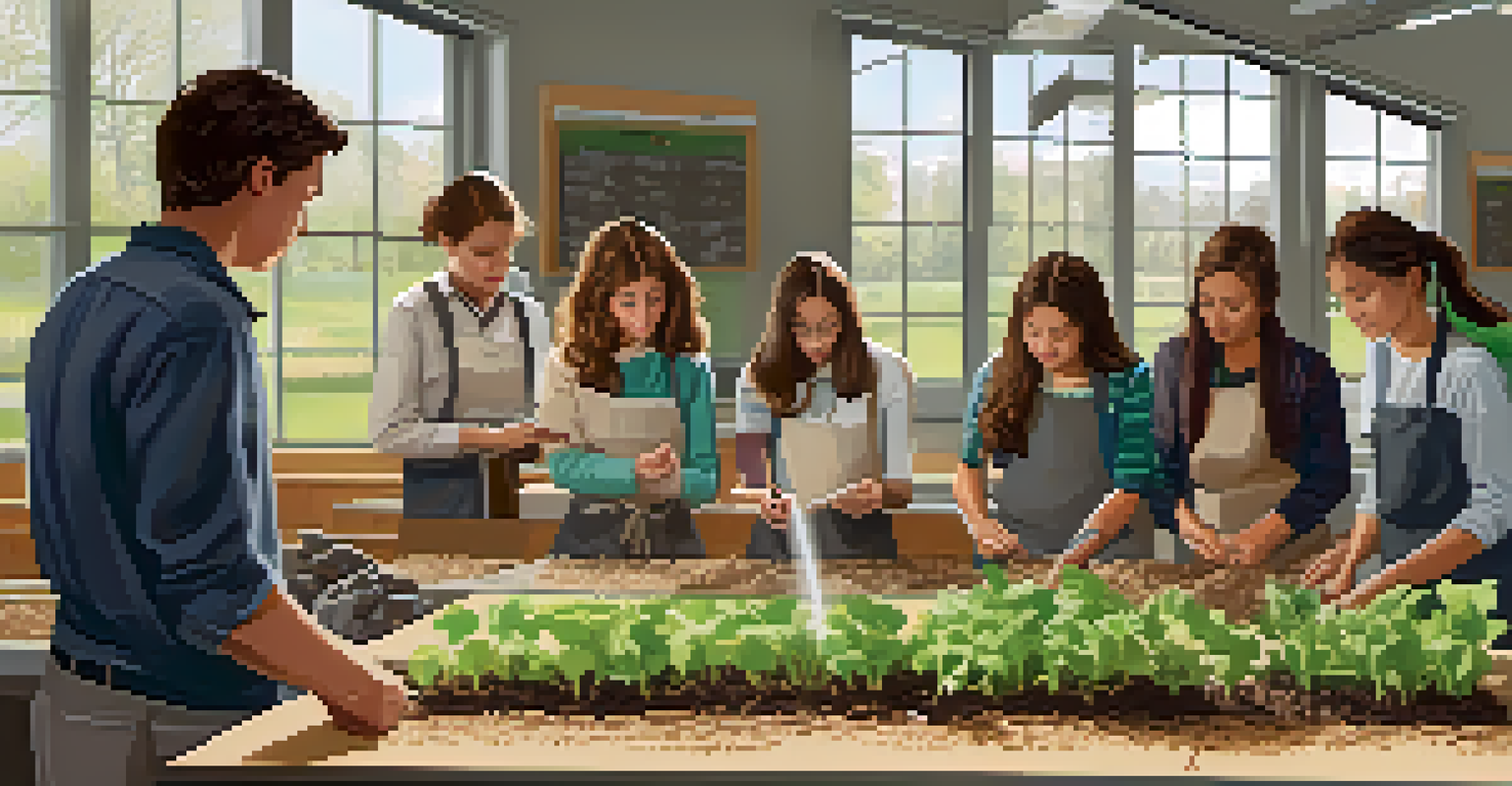The Future of Agriculture: MSU's Vision and Innovations

Understanding the Current Landscape of Agriculture
The agricultural sector is undergoing a profound transformation, driven by technological advancements and changing consumer demands. Farmers are increasingly required to adopt sustainable practices while maximizing yield and efficiency. This shift has prompted educational institutions, like Michigan State University (MSU), to take a leading role in shaping the future of agriculture.
The farmer is the one who has to make it happen, and we're here to help them succeed in that endeavor.
At MSU, researchers and educators collaborate to address the pressing challenges faced by farmers today. From climate change to resource management, the university is at the forefront of finding innovative solutions that can be applied in real-world scenarios. This commitment not only supports local farmers but also contributes to global food security.
By understanding the current landscape, MSU sets the stage for pioneering agricultural advancements. Their vision encompasses not only improving farming techniques but also ensuring that these methods are sustainable for future generations.
MSU's Commitment to Sustainable Agriculture Practices
Sustainability is at the core of MSU's agricultural vision, with a focus on practices that protect the environment while boosting productivity. This involves researching crop varieties that require less water and developing integrated pest management strategies that minimize chemical use. By prioritizing sustainability, MSU aims to create a resilient agricultural system.

Programs at MSU emphasize the importance of soil health, biodiversity, and conservation practices. For instance, they encourage cover cropping and crop rotation, which not only enhance soil nutrients but also promote ecological balance. This holistic approach ensures that agriculture remains viable and productive for years to come.
MSU Leads in Sustainable Agriculture
Michigan State University is committed to advancing sustainable farming practices that protect the environment while enhancing productivity.
Through workshops and outreach programs, MSU educates farmers about these sustainable practices, helping them implement changes on their farms. This hands-on support is crucial for transitioning towards more eco-friendly methods that benefit both the land and the farmers' bottom line.
Innovations in Precision Agriculture at MSU
Precision agriculture is revolutionizing how farmers manage their fields, and MSU is at the forefront of these innovations. By utilizing data analytics, GPS technology, and sensors, farmers can make informed decisions that optimize resource use and enhance crop productivity. This data-driven approach is not just a trend; it's the future of farming.
Sustainable agriculture is not a destination, but a journey that requires continuous learning and adaptation.
MSU researchers are continuously exploring new technologies that can be applied in the field. For example, they are developing drones that monitor crop health and soil moisture levels, enabling farmers to respond quickly to changing conditions. These innovations help reduce waste and ensure that every drop of water and every nutrient is used effectively.
The integration of technology in agriculture allows for tailored solutions that cater to specific farm needs. By embracing precision agriculture, farmers can not only boost their yields but also minimize their environmental footprint, aligning perfectly with MSU's sustainable vision.
The Role of Research and Development in Agriculture
Research and development (R&D) play a critical role in advancing agricultural practices, and MSU prioritizes this aspect in its mission. The university invests in cutting-edge research to explore new crop varieties, pest-resistant plants, and innovative farming techniques. This commitment ensures that farmers have access to the latest science-backed methods.
Collaborative projects between MSU and agricultural businesses foster an environment where innovation thrives. These partnerships facilitate knowledge transfer and practical applications of research findings, bridging the gap between theory and practice. As a result, farmers can implement new strategies that enhance productivity and sustainability.
Innovations Drive Precision Farming
Through cutting-edge technology like data analytics and drones, MSU is revolutionizing how farmers optimize resource use and increase crop yields.
With a strong emphasis on R&D, MSU is not only addressing current agricultural challenges but also anticipating future needs. This proactive approach ensures that the agricultural sector remains adaptable and resilient in the face of evolving circumstances.
Advancements in Biotechnology and Crop Science
Biotechnology is transforming agriculture, and MSU is actively engaged in exploring its potential. Through genetic engineering and molecular breeding, researchers are developing crops that withstand pests, diseases, and extreme weather conditions. This innovation holds promise for increasing food production in a changing climate.
MSU's biotechnology programs focus on creating crops with enhanced nutritional profiles and improved yield potential. By harnessing the power of science, they aim to address global hunger while also providing farmers with the tools to thrive. These advancements are crucial as the world grapples with the challenges of feeding a growing population.
As MSU continues to lead in crop science, they are committed to ethical practices and transparency in biotechnology. Engaging with communities and stakeholders ensures that the benefits of these advancements are understood and embraced, fostering trust in the scientific process.
Education and Training for Future Farmers
Education is key to empowering the next generation of farmers, and MSU is dedicated to providing comprehensive training programs. Through hands-on learning experiences, students gain valuable skills in sustainable farming practices, technology integration, and effective resource management. This practical knowledge prepares them for the challenges of modern agriculture.
MSU offers various programs, including workshops, internships, and field demonstrations, that allow students to apply their learning in real-world settings. This experiential approach not only enhances their understanding but also fosters a sense of responsibility towards sustainable practices. It equips them to make informed decisions as future agricultural leaders.
Education Empowers Future Farmers
MSU provides hands-on training and resources to equip the next generation of farmers with the skills needed for modern, sustainable agriculture.
By investing in education and training, MSU ensures that the agricultural workforce is well-prepared to tackle the evolving landscape. This focus on development aligns with the university's overarching goal of fostering innovation and sustainability in agriculture.
Community Engagement and Global Impact
MSU recognizes the importance of community engagement in its mission to transform agriculture. By collaborating with local farmers, businesses, and organizations, the university fosters a network of support that benefits everyone involved. This collaborative spirit enhances knowledge sharing and encourages the adoption of innovative practices.
Through outreach programs, MSU provides resources and expertise to help local farmers navigate challenges and implement sustainable practices. These initiatives not only strengthen local economies but also contribute to broader environmental goals. It's a win-win situation that highlights the interconnectedness of agriculture and community wellbeing.

On a global scale, MSU's research and initiatives have far-reaching implications for food security and sustainable farming practices. By sharing knowledge and collaborating with international partners, the university plays a vital role in addressing global agricultural challenges, ensuring that their impact extends beyond local borders.